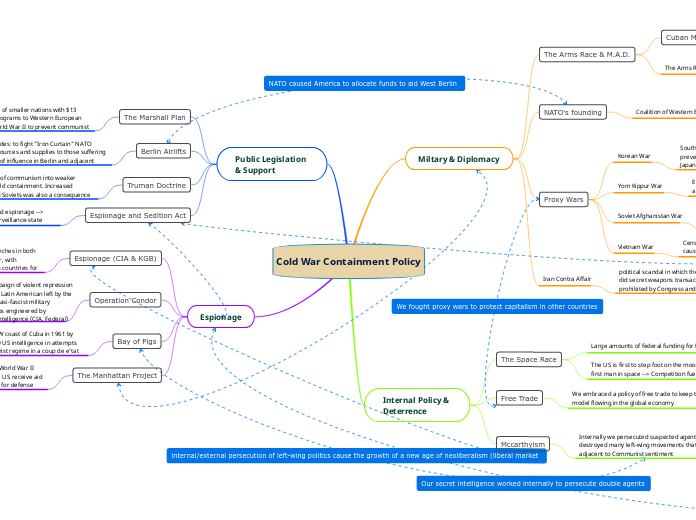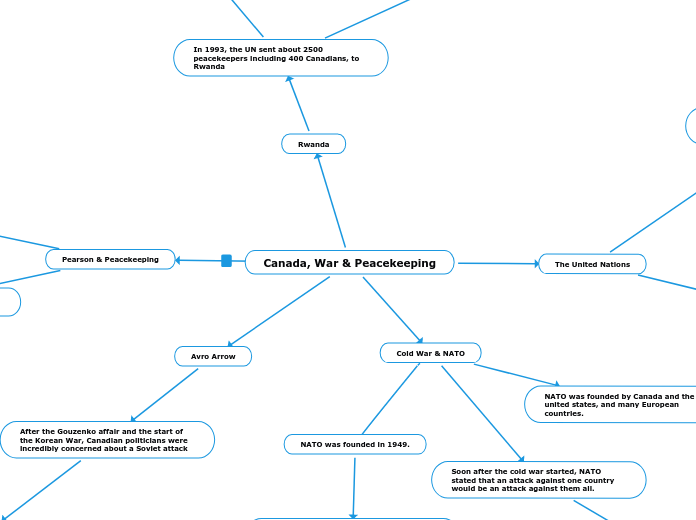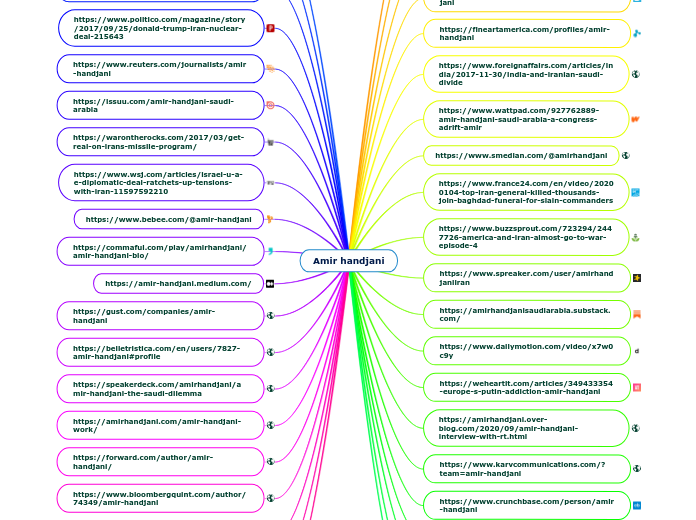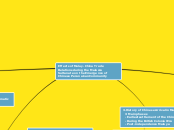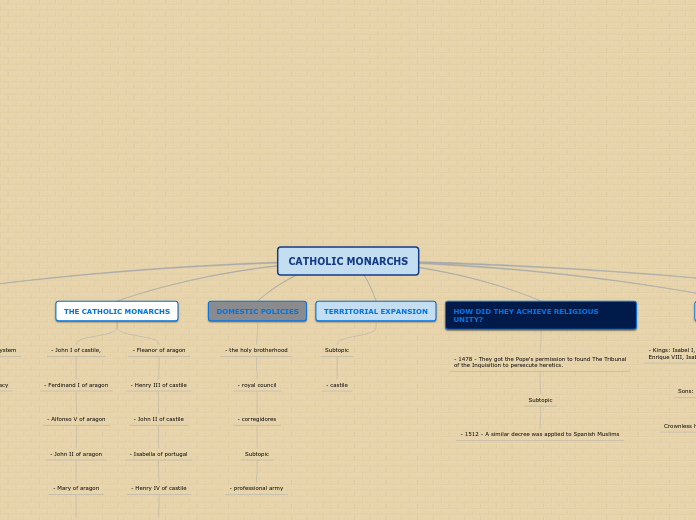Cold War Containment Policy
Espionage
The Manhattan Project
research and development undertaking during World War II produced the first nuclear weapons and had the US receive aid from Canada and UK to develop such weaponry for defense
Bay of Pigs
failed landing operation on the SW coast of Cuba in 1961 by Cuban exiles that were funded by US intelligence in attempts to take down the Castro Communist regime in a coup de e'tat
Operation Condor
global campaign of violent repression
against the Latin American left by the
region's quasi-fascist military
dictatorships engineered by
American intelligence (CIA, Federal)
Espionage (CIA & KGB)
The growth in funding for covert intelligence branches in both global powers created a war behind the Cold War, with espionage and secret agents being active in both countries for information and sabotage
Public Legislation
& Support
Espionage and Sedition Act
Worked to fight internal Soviet influence and espionage --> promoted American patriotism in a new surveillance-state precedent
Truman Doctrine
helped to prevent the spread of communism into weaker European countries and upheld containment. Increased tension between the USA and Soviets was also a consequence
Berlin Airlifts
The Berlin Wall & Blockades: to fight "Iron Curtain" NATO would send airlifts of resources and supplies to those suffering under the Soviet sphere of influence in Berlin and adjacent
The Marshall Plan
Truman funded the economies of smaller nations with $13 billion in economic recovery programs to Western European economies after the end of World War II to prevent communist uprisings
Internal Policy &
Deterrence
Mccarthyism
Internally we persecuted suspected agents of the USSR and destroyed many left-wing movements that were Socialist or adjacent to Communist sentiment
Rosenbergs put on trial as USSR agents, publicized case causes a huge rise in paranoia and Russophobia --> hyperpatriotism and nationalism weaponized for propaganda
Hollywood filmmakers and celebrities are blacklisted in speaking out against Mccarthyism and the "witch trials" era of politics
Free Trade
We embraced a policy of free trade to keep the capitalist model flowing in the global economy
The Space Race
The US is first to step foot on the moon after Russia puts the first man in space --> Competition fuels scientific progress
Large amounts of federal funding for NASA
Miltary & Diplomacy
Iran Contra Affair
political scandal in which the National Security Council (NSC) did secret weapons transactions and other trades that were prohibited by Congress and policy
Proxy Wars
Vietnam War
Censorship towards domestic protests against the draft caused internal brutalities (Kent State Shooting, etc)
Soviet Afghanistan War
insurgent groups aka Mujahideen, & Marxist–Leninist–Maoist groups fought a nine-year guerrilla war against the Democratic Republic of Afghanistan and the Soviet Army
Yom Kippur War
Egyptian and Syrian forces launched a coordinated attack against Israel on Yom Kippur to take back "homelands"
Korean War
South and North Korea fought in ideology. America wanted to prevent the domino effect. Truman worried if Korea fell, then Japan would after, which would ruin trade.
NATO's founding
Coalition of Western Bloc
US concerned with containment. Nato allows USA to place weapons in member states. This would allow more effective defense in the event of a Soviet attack.
Permanently connected US both in action and in
policy to foreign affairs --> now our politics
were concerned with its impact on the
world and how we could aid/influence
world affairs
The Arms Race & M.A.D.
The Arms Race
many global powers raced to arm up their militaries with nukes and technology in the excuse of "personal defense" and caused an overall rise in tensions
Cuban Missile Crisis
The USSR removes their missiles from Cuba after a series of tense talks --> Detente (de-escalation)
